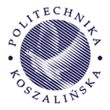In 2020 the world has been severely hit by a global COVID-19 pandemic. COVID-19 has led to a lockdown of local, regional and even national economies for months. Societies have faced new and severe social and economic challenges such as potential loss of industries like event, tourism and hospitality. International Labour Organization predicts unemployment will rise by 24.7 million people due to the COVID-19 pandemic (ILO: Monitor, 2020). Growing unemployment is likely to translate into increasing welfare expenditures for national, regional governments, social insecurity, and deteriorating public health. The International Labor Organization estimates that by the end of 2020, the economic loss due to COVID-19 will tap between 860 billion and 3.4 trillion dollars. Furthermore, World Bank estimates that the global economy will shrink for at least 7.1% in 2020 (ILO: Monitor, 2020, Global Economic Prospects, 2020). Over the longer horizon, the deep recessions triggered by the pandemic are expected to leave lasting scars through lower investment, an erosion of human capital through lost work and schooling, and fragmentation of global trade and supply linkages.
In Poland, lockdown has frozen the country. Numerous business and social activities have stopped completely or slowed down for several weeks, and in some cases even months. Events&festivals is of the most affected sectors of Polish economy. It continues to suffer from COVID-19 restrictions coupled with changing preferences of the post-pandemic consumer in terms how they choose to spend leisure time (Davies, 2020). In 2019 event sector in Poland accounted for 1.5% of GDP, which in turn accounted for PLN 35 billion of the contribution to the economy and 220,000 jobs (the Polish Tourist Organization). The same year, 16.3 million people from Poland and abroad attended Polish events and festivals (Poland Meetings and Events Industry, 2020).
COVID-19 pandemic led the event industry to the brink of bankruptcy, depriving thousands of people of work and earnings prospects that support their families. If not addressed immediately, this situation will become a societal issue. Events & Festivals (E&F) build the structure of contemporary global society (Davis, 2020). Therefore saving the sector by identifying problems and increasing its resilience through targeted solutions is necessary. E&F stimulate a sense of place (Hall and Sharples, 2008), strengthen social and communal identity or belonging (Jaeger and Mykletun, 2013) by fostering as well as contribute to building relationships, cooperation and networks between its participants (Derrett, 2003; Wilks, 2011; Quinn & Wilks, 2013). Moreover, E&F supports learning and skills development among individuals and groups of people (Moscardo, 2008) and affect socialization and family community (Crompton & McKay, 1997; Jepson et al., 2019). E&F often become escape from everyday life. In times of pandemic, when people fear to interact, independent, smaller, and non-commercial E&F are at risk of closure due to high costs and low profit margins (Silvers, 2013). This situation may deprive society of the ability to fulfil its important societal needs, resulting in public health deterioration. E&F are created through hard work the work of many stakeholders, including organizers and exhibitors, residents and participants (Blichfeldt & Halkier 2014; Einarsen & Mykletun 2009; Kwiatkowski, Oklevik, Hjalager & Maristuen 2019; Botti et al. 2019; Hjalager & Kwiatkowski 2018; Getz & Page 2016), additional services providers (Alves, Campon-Cerro & Martins 2010), volunteers (Getz et al., 2007), sponsors (Organ, Koenig-Lewis, Palmer & Probert 2015), local governments (Anderson & Getz 2010), media (Booth, 2016), and guests (e.g. artists, celebrities) (Lau & Li 2019). But they will not happen if visitors cannot feel safe and secure. Moreover, some of the entities are enterprises that risk bankruptcy without a long-term inflow of funds, which may affect the state's economic situation.
This situation, per se, constitutes to be a great societal challenge which calls for urgent intervention to save what is left and rebuild the resilient E&F sector through action research. We propose to set an intervention project that deepens the understanding about the current state of the sector sustainability and potential solutions that facilitate its transition towards the post-pandemic context. This project's rationale lies in that need for up-to-date knowledge and knowledge-based tailored solutions to build resilient E&F ecosystems in “new reality”. Therefore, the project responds to NAWA call for more research devoted to the sudden, important, unforeseen social phenomena with global or regionally significant consequences.
If you wish to learn more about the project, please contact project leader Associate Professor Grzegorz Kwiatkowski (grzegorz.kwiatkowski@tu.koszalin.pl).



